-
 RETAIL TOUR IN CHINAContact usDiscover the futur of retail
RETAIL TOUR IN CHINAContact usDiscover the futur of retail
NEW ! Virtual Learning Expeditions
Why going digital?
– Cost-effective for large number of participants
– Explore multiple ecosystems around the world at the same time
– Flexible timings

EXPLORE THE FUTURE OF RETAIL IN CHINA
We organize learning expeditions about retail innovations in China, but also in other places leading the way such as Singapore, London or Paris, as well as virtual learning expeditions. Contact us to discuss your project and objectives!
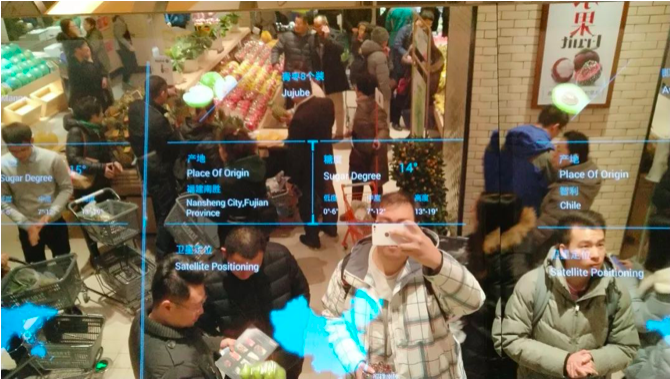

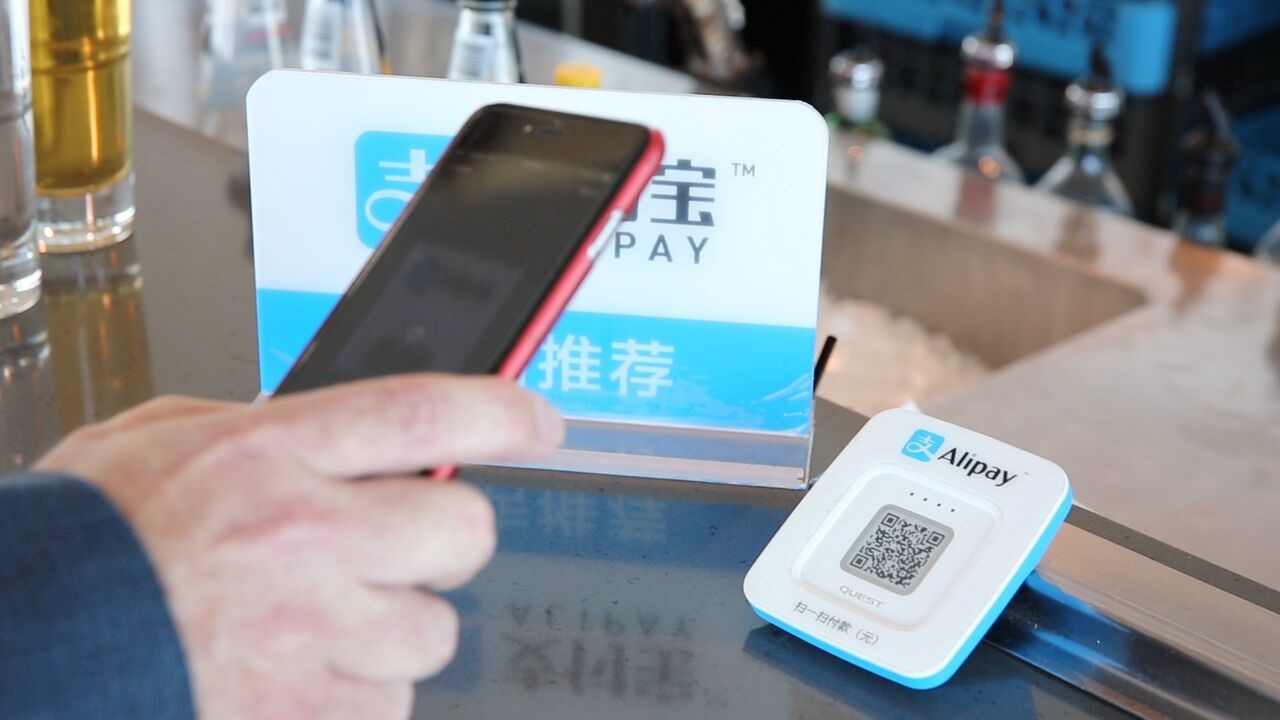
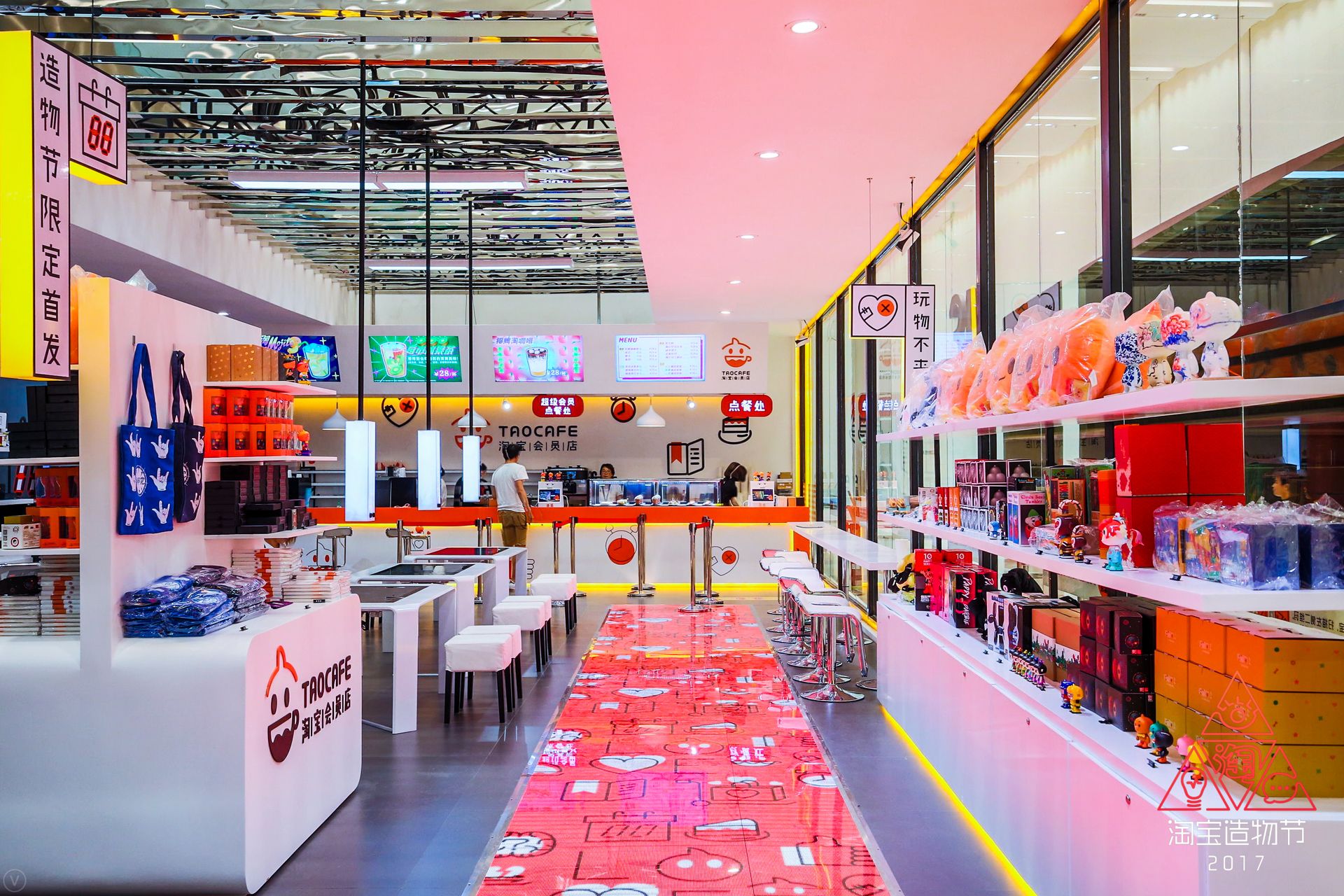

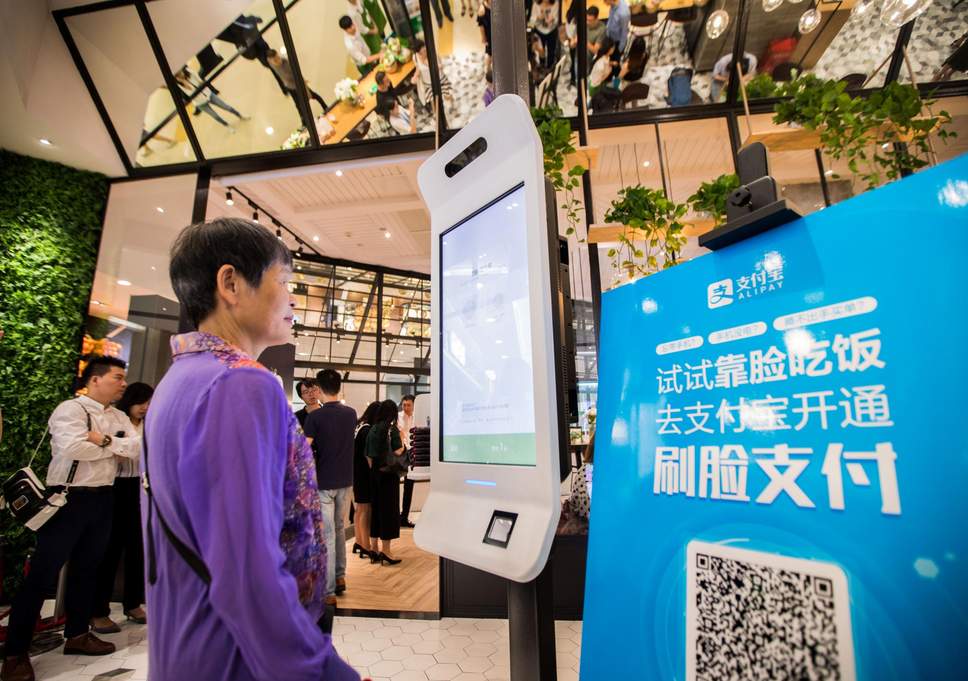

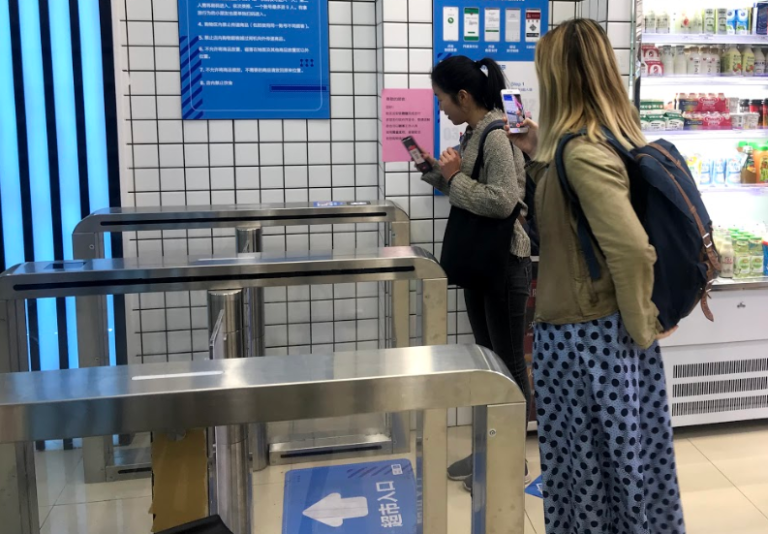
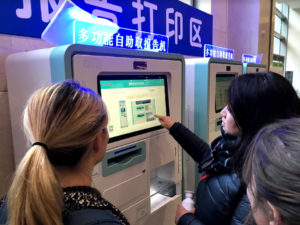
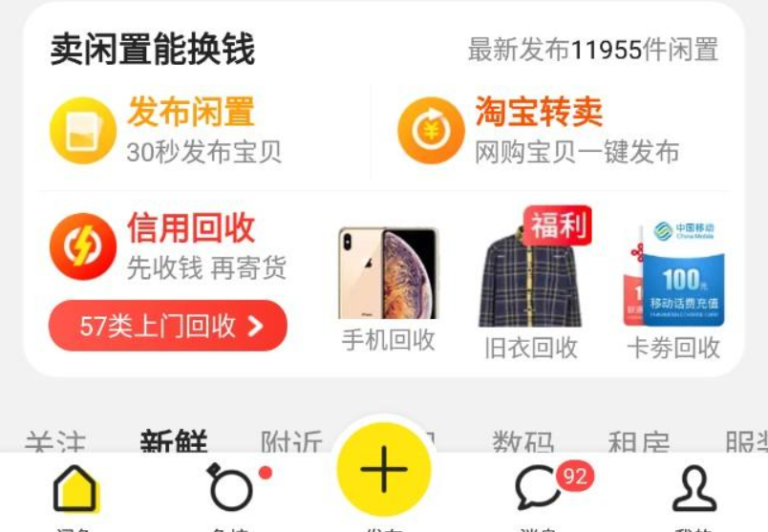
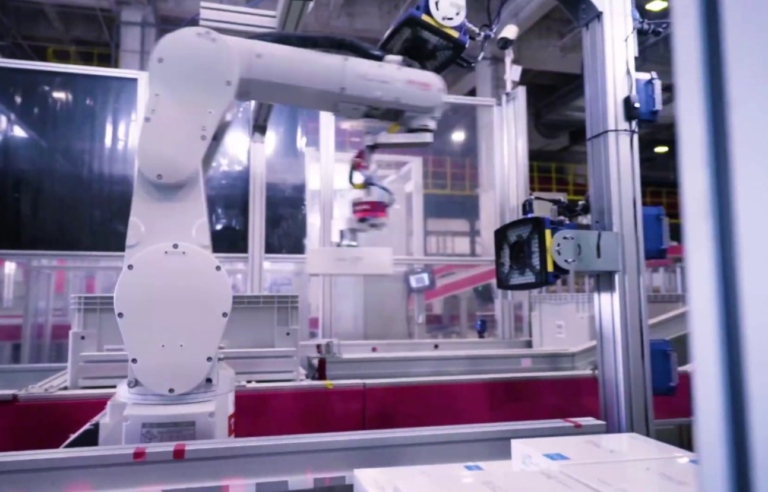
You want to :
– Understand the “new retail” trend in China and enrich your vision on the future of retail and what’s next in terms of customer experience
– Learn about the trends, innovations and technologies transforming the retail sector in China (online-to-offline, data, AI, blockchain, circular economy)
– Inspire your teams to innovate and think creatively
– Align your management/teams on strategic topics to prioritise
– Improve the cohesiveness of your team for more effectiveness
– Embark your key stakeholders into your new vision of the world by offering them to participate in a learning experience designed to deliver on your messages
Why organizing an off/online Learning Expedition / Retail Tour in China?
1- Visit tech-enabled retail stores and observe payment innovations:
New Retail is a term first used by Alibaba’s founder, Jack Ma. The idea is to offer a new shopping experience combining the best of online and offline commerce. China has undeniably taken the lead in the market when it comes to reinventing the customer experience. The large scale adoption of mobile payments WeChat and Alipay has transformed the chinese retail sector.
BingoBox was the world’s first fully automated store experiment and Hema Xiansheng, launched by Alibaba, was the first supermarket to work as a distribution center for online orders as well. Hema is also ahead when it comes to the traceability of products and to reinvent the cashout process with facial recognition.
2- Understand the full potential of e-commerce and digital marketing trends:
China’s e-commerce has known an unstoppable growth over the last few years. The penetration of e-commerce in the country was 61.8% in 2020. On 11.11.19, for the Singles Day, the biggest shopping festival in China, 38.4 billion merchandises have been sold on Alibaba platforms in just 24 hours. Alibaba and Tencent, the largest tech companies in China, are constantly innovating to improve the online shopping experience, leveraging on video live streaming, influencers (KOLs) or social media. China is therefore the ideal place to better understand the potential of these trends to transform the retail sector.
3- The leader in supply chain and delivery automation:
The Chinese tech giants also pave the way for using new technologies in their distribution centers, automating the different steps with robots, visual recognition and AGVs. For example, JD.com opened a fully automated warehouse of 40000 sqm in october 2017, with 4 employees instead of the usual 180. The warehouse can prepare 200.000 packages per day. In China, around 12,5 million production jobs have vanished between 2013 and 2017 and replaced by robots (Financial Times). They are also testing autonomous vehicles for deliveries, which has been helpful to deliver to hospitals during the pandemic.
4- Get inspired by innovative circular economy initiatives in China:
A new market is growing fast in China: the second-hand market. Half (51%) of the urban Chinese consumers buy second-hand because it is good for the environment, according to a study from Mintel. Alibaba is answering the population’s demand with more and more initiatives, such as its app Xianyu. An enabler to the second-hand sector is Alibaba’s social credit score system Sesame Credit which helps to build trust among buyers and sellers. Alibaba is also experimenting with recycling initiatives to meet the population’s expectations and the government’s regulation. China has passed new laws to promote recycling while plastic bags will be forbidden by 2022.
How to explain China's lead in retail?
The world’s largest retail market: With 1.3 billion inhabitants, China is the most populated country in the world. The retail industry is boosted by the growth of a middle class exceeding the American one. China is therefore a good market for consumption, online or in stores. According to the National Bureau of Statistics of China, total retail sales for physical goods in 2018 amounted to 38,098.7 billion yuan (4.9 trillion €) with physical stores taking 81,6% of those numbers. According to TechNode, the amount spent by a Chinese consumer in one month is the same as that spent by a Greek in 5 years.
Universal adoption of mobile payment: The New Retail takes its roots in the mobile payment habits, which has streamlined the whole online and offline cashout process in China. In 2018, Chinese consumers sent about RMB 152.77 trillion (19,66 trillion €) through third party payment (Ipsos 2018 Q4 Third-Party Mobile Payment User Report. 93,3% of all the mobile payment population use either WeChat Pay or Alipay.
A population eager for new technologies: The Chinese are receptive to change and new technologies. QR codes are now part of the daily lives of millions of consumers across the country, and some stores are equipped with automatic shopping carts or try-in cabins equipped with smart mirrors, capable of suggesting personalized outfits or providing an item’s information. The Chinese consumer has embraced new technologies more than anywhere else.
More flexible regulation: The Chinese are not as concerned about their personal data as in the West, and this allows businesses to leverage on them creatively and offer more personalization and convenience.
Lead in artificial intelligence: The Chinese Internet giant Baidu opened a deep learning institute in Silicon Valley in 2013 and invested $300 million in 2014, becoming one of the world’s leading artificial intelligence research centers. China has also overtaken the United States in the number of scientific publications on deep learning in 2015.
Transformations of the working population: The population is aging, and as a result, the number of active people is decreasing. Young Chinese graduates no longer accept low-skilled jobs, which is why there is a strong need for automation
LET'S DISCUSS YOUR OBJECTIVES TOGETHER!
EXAMPLE OF A 3 TO 5 DAY PROGRAM
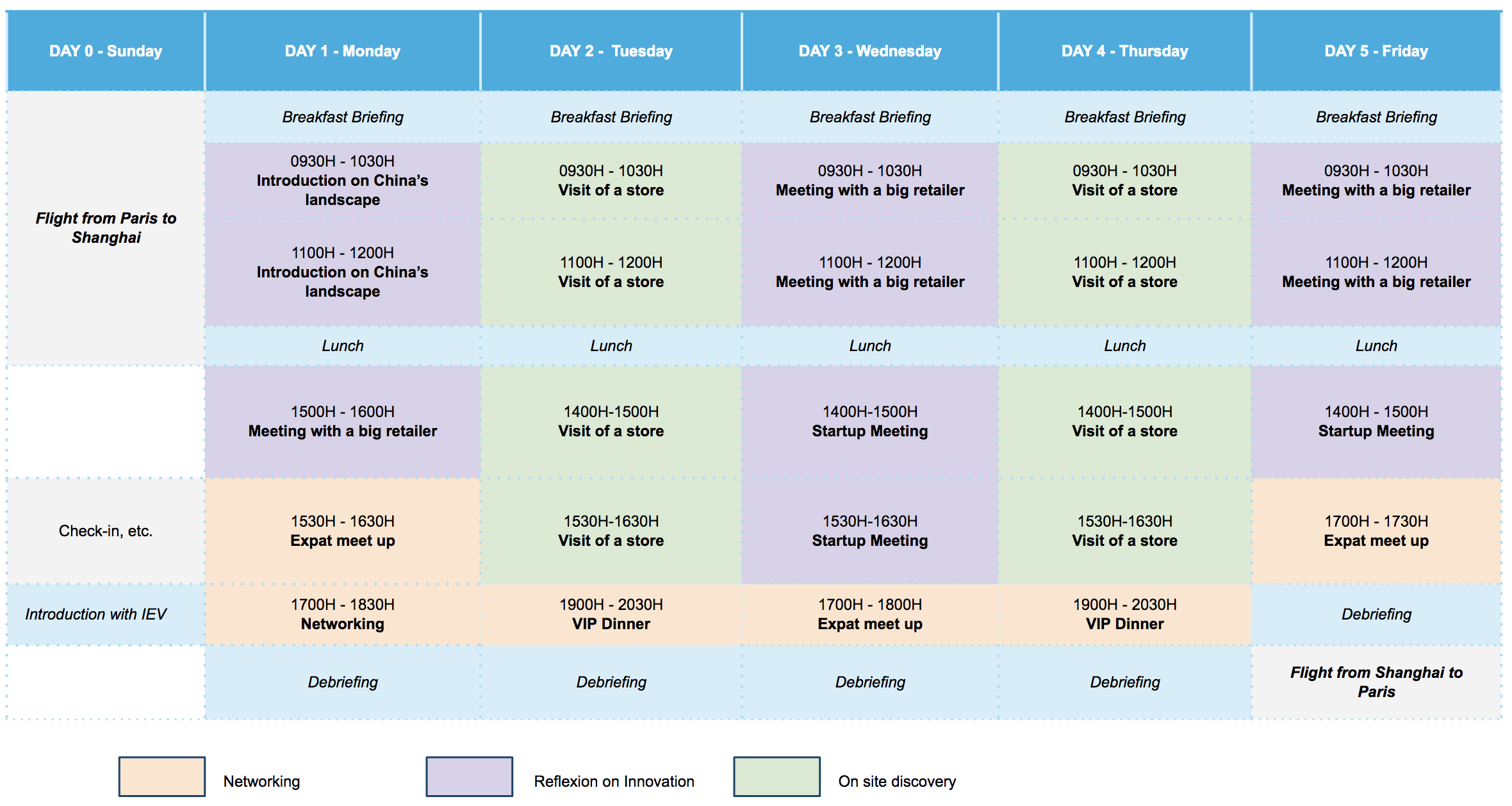
WHAT TO EXPECT FROM OUR RETAIL TOUR IN CHINA ?
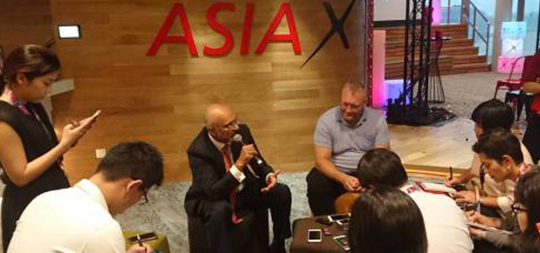
PARTICIPANTS GUIDES & MEETINGS WRAP-UPS
We prepare all meetings with the speakers, provide you with guides for all participants and a wrap-up report of the tour
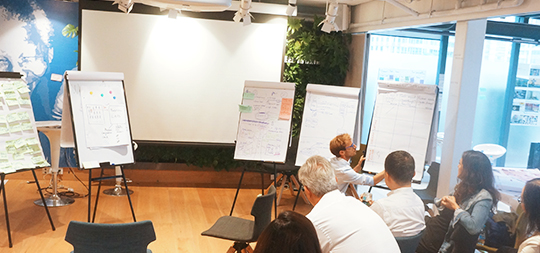
FACILITATION
We organize workshops and reflection sessions to share insights from the visits, foster new thinking and stimulate new ideas

EXPERIENTIAL VISITS & MEETINGS
We test out the latest prototypes and engage in open discussions with innovators to get fresh ideas and learn from their experience

NETWORK OF EXPERTS IN ASIA
We connect you to inspiring innovators who matter for you and are ready to share their experience and best practices – from disruptive startups to innovative corporates, digital experts and vibrant communities.
JOIN OUR RETAIL TOUR
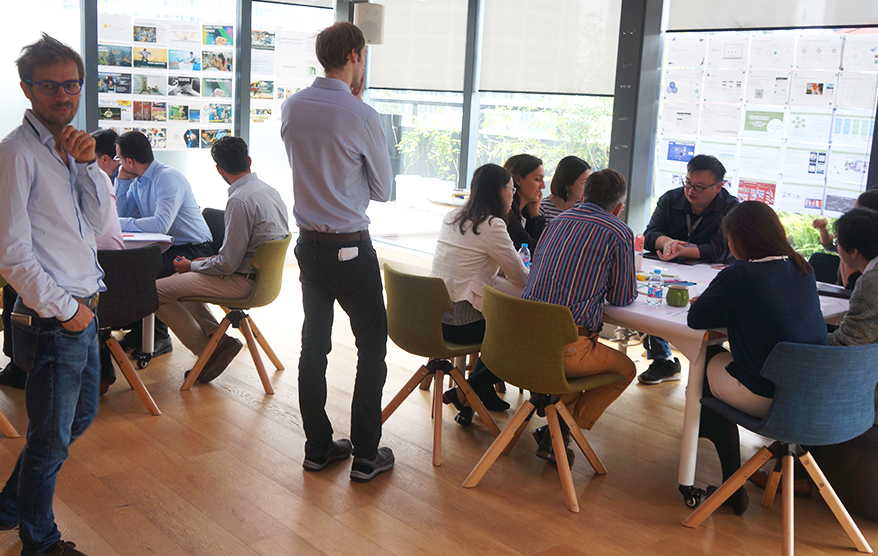
CLIENTS
THEY TRUST US

Frank Desvignes

Dominique Rémy

Nikolay Christov

Yves Lacheret










